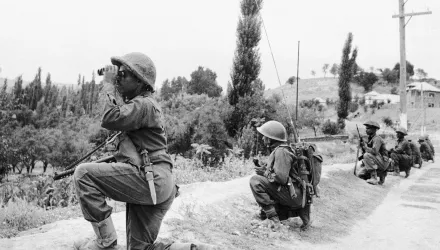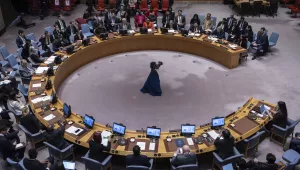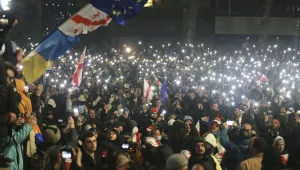Web Exclusive
Russia’s recent campaign against Georgia is a textbook example of how powerful states forged empires in centuries gone by. For those who have forgotten, here’s how it’s done.
"Empires like the one Moscow has embarked on creating in this century proved an abject failure in the last. In fact, the colonial and imperial project has been recognized as folly for so long by so many that few today even recall how to go about building an empire. So for those who have forgotten, allow me to offer the recipe.
An empire requires three key ingredients.
First, find a neighboring national minority that can be used as a pretext for intervention. The character of the national minority—be it racial, linguistic, or religious—is less important than that it reside within a state which is relatively defenseless as compared with one’s own. The Ossetians and the Abkhaz have always been friends of Moscow, so absorbing them is far less perilous than, say, incorporating nationalistic Georgians or Ukrainians. Empires understand this, which is why they invariably settle their own populations in the region to not only administer the territory, but serve as a ready cadre of loyalists (à la French pied-noirs in Algeria).
Second, it is absolutely essential that the empire builder have regional military dominance. Such dominance will dissuade others who might be tempted to come to the aid of the unhappy host of the aforementioned neighboring national minority. In the past, possessing artillery was enough, but air power dominance became essential in the mid-20th century. In the current era, it’s nuclear weapons. Add a pinch of insecurity: If you can make the case that you need to acquire a bit more territory because you’ve been assaulted or abused in the past, this will help a great deal. Given Russia’s nuclear arsenal and its military punch in the region, the international community can hardly pry it from its new territorial possessions.
Third, the empire builder also needs something others want. Cash is always a good option. If not cash, then something easily convertible, such as gold, diamonds, or, if the states with the highest capacity or will to intervene are energy importers, energy (gas, petroleum) will do. Russia’s strategy of forming only bilateral agreements with energy-dependent European states is a classic divide-and-rule approach. Unless energy prices drop precipitously or Europe finds other suppliers, Europeans have scant leverage. . . "
More> (login may be required)
The full text of this publication is available via Foreign Policy.



